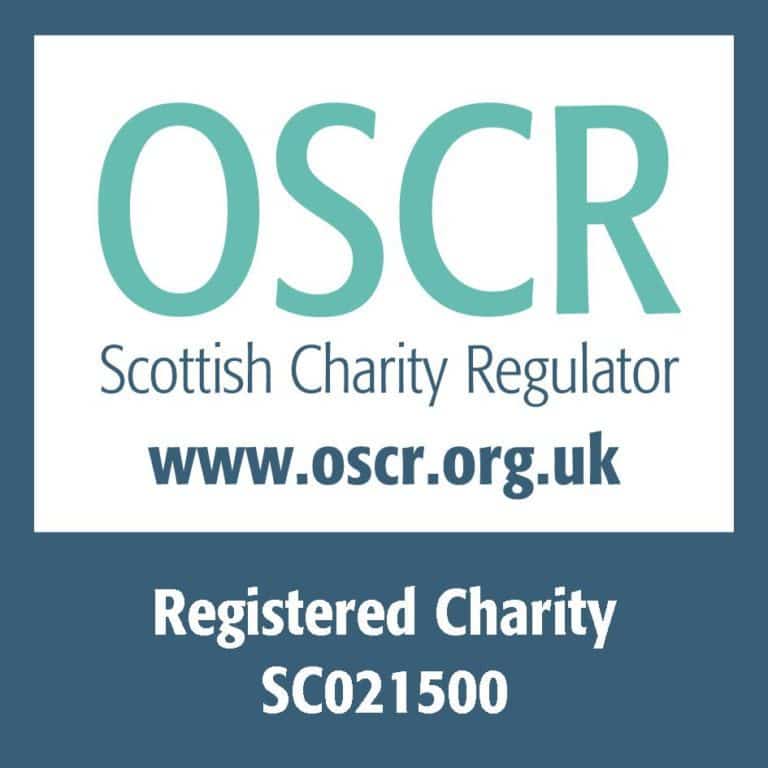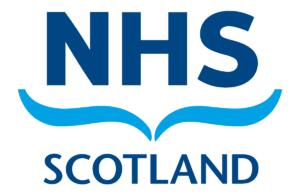Sometimes we take drugs to help us cope with difficult emotions or experiences. Over time we may find the drug no longer helps us to cope in the same way, and we may find we are struggling to cope with the effects of longer-term drug use. If you notice this is happening for you, you might want to seek help to address this. Your GP may be able to point you in the right direction for support, and you can find your nearest drug service at Scottish Drug Services Directory.
The NHS suggests that there are ‘5 steps to mental wellbeing’ – 1.Connect. 2. Be physically active. 3. Mindfulness. 4. Give. 5. Learn.
- Connect with others – Connecting with others is a great way to make us feel good. Due to COVID-19 restrictions, we cannot meet and connect with people face to face in the same way. This can have an impact on our wellbeing in many ways. We may notice that our drug use or mental health is changing. It is important to stay connected with others the best we can, and be creative about how we can do this, such as connecting via Zoom or on the telephone. If the current rules in your area allow it, you may be able to meet others outside for exercise, such as a walk. It may not seem like much, but chances are that you will feel better afterwards.
- Be physically active – Exercise helps to maintain positive health and wellbeing. It can make us feel good and be a natural high. Its best to regularly exercise outside in the fresh air but even if you are stuck indoors there is lots to do. Some leisure centres are providing online classes and the NHS have fitness studio exercise videos on everything from aerobics, to belly dancing, to pilates and yoga.
- Mindfulness – Mindfulness is paying attention to the present moment with non-judgemental awareness. There are many different mindful practices, and we may be mindful more than we realise, such as when we are engaged in our favourite hobby, listening to a piece of music, or paying attention to the environment around us when we are on a walk. Mindfulness may include being aware of our thoughts, our feelings, our actions. or the world around us. Practicing mindfulness with intention can help us to understand and control our emotions, which can help us to see the bigger picture and to better tolerate difficult situations. You can find out more about mindfulness here.
- Give – Being kind and giving can improve our mental health. Examples of this can be saying thank you to someone for something they have done for you, or asking friends, family or colleagues how they are and really listening to their answer. Giving kindness to ourselves, or self-compassion, is just as important but is sometimes harder to do. Tips for developing self-compassion can be found here.
- Learn – Research shows that learning a new skill can improve mental wellbeing. It can give a sense of accomplishment and purpose and help us to connect with others.
A note on motivation
Sometimes it can be difficult to do the things we know will help us, as we don’t feel we have the motivation for it, for one reason or another. Motivation during lockdown restrictions can make things even more complicated. That’s why one of the most important things can be being kind to ourselves. Appreciating ourselves for our achievements no matter how big or small is important.
Regular meals
When you are taking drugs on a regular basis it can make it easy to skip meals or to miss out on healthy meals. Try planning and preparing a week of meals in advance.
Changes in appetite
Drugs can change our appetite. The use of some stimulants can cause a decrease in appetite which can lead to weight loss. The use of other drugs, such as cannabis, may result in increased appetite and weight gain. These side effects will depend on a variety of factors including other medication or other drugs that you may be taking.
Harm reduction
Eat a healthy meal at least one hour before taking drugs, to reduce the risk of nausea.
Carry healthy snacks with you – nuts, seeds and bananas are a great source of quick vitamins and essential nutrients. Make sure you are aiming for a good mix of calcium, protein, iron and healthy fats.
Try to pack lots of vitamins into your diet and take vitamin supplements if needed. Did you know that the Scottish Government advises that “Everyone (including children) should consider taking a daily supplement containing 10 micrograms of vitamin D (400 IU), particularly during the winter months”?
After taking drugs
When the effects wear off people may find themselves binging on high-fat, low-nutrient foods. Poor nutrition can lower your immune system leaving you more prone to coughs and colds.
Things to consider
If you are diabetic, it is important to check your blood sugar is at a safe level before, during and after taking drugs. Read our Drugs and Diabetes resource for more info.
If you are tempted to take drugs to avoid weight gain, then consult your GP or nutritionist. For support on eating disorders, visit Beat.
Regular drug use can make it difficult to fall asleep and stay asleep. It also reduces sleep quality, and you may find that drugs influence your dreams. You may not dream as frequently while taking drugs or you may experience vivid dreams that are unsettling.
It can be tempting to take depressants to help with sleep but while some may find this effective in the short term, it can lead to long-term issues with natural sleep management.
Try to sleep on your side if you have been taking drugs. This will help to keep your airway clear.
Sleep hygiene
Sleep hygiene is what we do and can put in place for ourselves to optimise getting a good night’s sleep.
Here are our 15 tips for getting a good night’s sleep.
During the day
- Try to exercise each day. Even short periods of light exercise can improve sleep quality.
- Napping- having a nap during the day can mean it is more difficult to get to sleep during the night. If you need to nap, it’s best to do it for no more than 30 minutes.
- Maintain a regular sleep routine and stick to it. Go to bed at the same time and get up at the same time each day.
- Stimulants such as nicotine and caffeine can make it difficult to get to sleep and reduce the quality of sleep. It is best to avoid stimulants (including caffeinated drinks) in the few hours before bedtime.
Before bed
- Avoid going to bed when full, hungry or thirsty.
- Although it can make us feel drowsy, alcohol reduces the quality of sleep and in high doses we are likely to feel groggy the next day.
- Avoid using electronic devices close to bedtime. Use an app or change the settings on your phone to reduce the blue light emitted from the screen.
- Have an hour wind down time before sleeping – do something relaxing like meditation, breathing exercises or gentle stretching.
Creating a comfortable space
- Some people find that keeping their bedroom cool and dark can help them to sleep but some people like to be warm and cosy. Experiment with what works best for you.
- Make your bed comfortable. Keep your sheets clean and use a good pillow.
- As much as possible try and keep the bed for the 3 S’s – sex, sickness and sleep. This is so the brain does not associate the bed with other activities, which may make it more difficult to relax and get to sleep.
During the night and going to sleep
- Avoid clock watching. The more we are worrying about how long it takes to get to sleep it is more likely to make it more difficult to get to sleep.
- If you are feeling like it’s taking a while to drift off to sleep get out of bed and do something boring, like reading a book you are not interested in. Every time your attention drifts from the book, slowly bring your focus back to the words. When you are feeling sleepier, get back into bed and try again. If you are not a fan of reading, audiobooks and podcasts are great alternatives.
- Worry, anxiety or depression can prevent us getting a good night’s sleep. You might find it useful to write down the worry, do a relaxation exercise or seek support to address it. Online self-help workbooks on worry and anxiety can be found here.
Coping with upsetting dreams and nightmares
- Upsetting dreams and nightmares can be the brain’s way of processing unusual, distressing or traumatic events that have happened in our life. The nightmares can be distressing to experience, and we can sometimes turn to drugs to help us cope with this. If you are experiencing this you might want to reach out for professional support.
It might be useful to think about the reasons for taking drugs. We might take drugs because they make us feel good, friends are taking them, or they might mask difficult emotions. We might be taking them currently because it has become a habit. You might find it useful to keep a diary (such as this substance use diary from Get Self Help) to track what you are taking, when and how much, how it makes you feel and what happened.
We may feel that we need support with our mental and emotional wellbeing such as anxiety or depression. For information on mental health visit NHS Inform.
Attending to our physical health can involve the things like physical exercise, nutrition and getting a good night’s sleep, but it can also include making sure we are seeking medical help when we need it or looking after ourselves when we are sick. It could mean getting regular health check-ups and tests.
One of the reasons we may take drugs is because others in our social circle are taking them or it might make us feel that we are more connected to others. Drugs can increase feelings of empathy and improve our connection with others, but they can also cause problems with our relationships.
Some drugs can make us feel less sociable and disconnected from others, some can make us feel paranoid or more aggressive. Part of taking care of our wellbeing this might include attending to the important relationships in our life. You might find you need help with this such as through counselling.
Think about what the challenges might be and what we can put in place to manage the challenges. It might be useful to consider who will help/ who might hinder this process for us.
Track patterns of use and identify strategies for managing triggers. It can be useful to remove temptation – delete and block contacts for dealers. If you usually take benzos with certain people, hold off seeing them for a bit. If you always end up taking them after you have had a few beers, avoid drinking.
One way of attending to our wellbeing is by asking for help – talk to a trusted friend or family member, or access support from a service such as Crew. Our Drop-in and Counselling Services are here to help.





